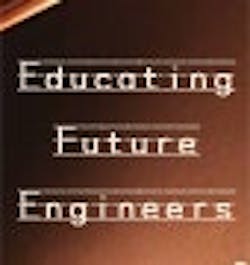Knowledge Recommended
When lack of knowledge controls your controls engineers, they often have nothing but recommendations to rely on when they select a control system. This is not a philosophy; its an accurate observation in the automation world here in Egypt. Sometimes, Egyptian automation professionals in different industries believe that getting recommendations from somebody is easier than studying and learning the information themselves.
From the point of view of the control system engineers working in production companies, there are three major sources for recommendationslicensors or know-how suppliers; engineering, procurement and construction (EPC) contractors; and control system suppliers or vendors. However, nobody can say with certainty that any of the recommendations made are not biased.
In some areas of the world where the engineers are not well-trained and sometimes not well-educated, we might find that the only way for those engineers to make a decision is to rely on recommendations from others. One has to know more about decision-making techniques.
I presented a paper at ISA Expo 2007 that introduced a practical example of a systematic procedure to select control system technology. My work was initiated by observing a a committee that was responsible for choosing the technology to be implemented in a new plant in Egypt. There were three options. The first option was to use a conventional, 4-20 mA control approach; the second was to use a hybridHART superimposed on 4-20 mA; and the third was to use Foundation fieldbus. I observed that the committees decision-making process was characterized by a high degree of randomness. This kind of random decision-making is not suitable in the field of automation.
I suggested seven criteria to be evaluated when selecting a new control system.
- Investment costsinitial purchase of hardware and software, engineering, training of technical staff, space requirements, installation and commissioning
- Operational factorssystem robustness, integration and configuration, database management, security, reliability and availability, diagnostics, information available for operation
- End-user familiarity with the system
- System application in similar projects
- Licensor or know-how supplier recommendation
- EPC contractor recommendation
- Control system vendor recommendations
I used a systematic, multi-criteria decision-making procedure called the analytic hierarchy process (AHP). We asked two different internal groups to rank the seven criteria. The first group consisted of eight instrumentation and control (I&C) engineers who work in Egypt, and the second group consisted of six I&C engineers from different countries.
The first group gave the highest priority to the licensor recommendations, while the second group gave the highest priority to operational factors.
This particular survey focused on a sample of automation engineers working in a continuous process environment, but automation engineers in other fields are in similar situations. For an automation engineer responsible for a control system in any machine builder company in Egypt, what is the expected procedure for the engineering work? Negotiating the features with vendors and waiting for their recommendations is the main task. There might be places where the engineering is done based on the knowledge of experienced people, but unfortunately it is not common in the developing countries where lack of education and economic strength create problems that must be faced.
Hence, recommendations are not the best solution. We should do what we can to enrich our own knowledge.
Mohamed Salah-eldin is standards and specification section head at Sidpec (sidpec.com), a polyethylene pr


